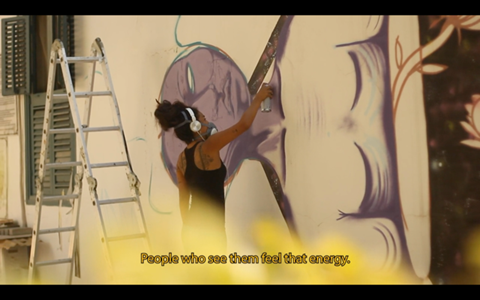
A new film by Mete Hatay (PRIO Cyprus Centre) and Orhan Eskiköy (independent director). This documentary follows groups of artists in Cyprus as they negotiate space within a divided city and find spaces for interaction and cooperation.
For 29 years, Cypriots were unable to cross the ceasefire line that divides their island. While for many Cypriots this lack of mobility began in 1974, the capital of Nicosia has been divided even longer, since intercommunal conflict first exploded in 1956. With the opening of the first checkpoints in 2003, there were immediate hopes of reunification that were then dashed when Greek Cypriots defeated a peace plan at referendum in 2004. Nevertheless, Cypriots continued to cross the line, visiting former homes, developing friendships, engaging in trade, forming business and artistic partnerships, and simply getting to know each other. This interaction only increased with the 2007 opening of the checkpoint dividing Nicosia's Ledra Street, historically a center for trade in the city.
This documentary follows Cypriot youth as they negotiate space within a divided city and find spaces for interaction and cooperation. Following the Ledra Street opening, and particularly after the 2013 economic crisis in the island's south, young people on both sides of the divide began flocking to Nicosia's neglected city within the walls. In the south, that space had undergone limited, and relatively unsuccessful, gentrification about two decades before. In the north, that space had been abandoned by Turkish Cypriots after 1974 as they moved into the suburbs. Finding cheaper rents, and often with thoughts of urban revival, youth began opening cafes, bars, and shops; engaging in street art and dance; and generally seeking to inject new life into this hitherto abandoned area.
The film vividly shows how youth are creating their own spaces for interaction in a still-divided city. Grassroots rather than funder-driven, their festivals, plays, and art workshops are driven by the desire of youth to have a space for expression. At the same time, these events, activities, and new spaces are organically multicommunal, incorporating not only Cypriots but also anyone living in Cyprus, including youth from Turkey who are unable to cross to the island's south. This emerging space, then, shows the possibilities for an organically emerging reconciliation that transcends the "bicommunalism"—or focus only on Greek Cypriots and Turkish Cypriots—in which the Cyprus Problem has been trapped for decades.





